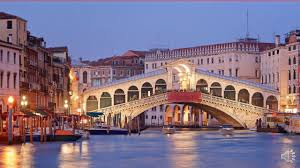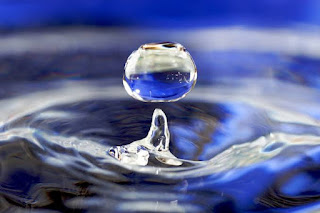Skin Care In A Changing Climate
Well,
hello there fresh and young!
Got a
question for you. What’s your skin care routine like? Er, the first question
actually should be, do you have a skin care routine?
Did you
know, we all take care of our skin?
Yes you
do.
Whether
it is splashing some soapy water on your face to clear the dirt and sweat or
spending hours in spas, online beauty forums and money in countless purchases
of that ‘miracle product’, we all care about how we look to some extent,
whether it is 1% or 100%.
Well regardless
of those who find it impossible to leave the house without at least ten
products on their face and those who deem it vain, and feeding consumerism,
skin care is important and why? Because the skin is the largest organ in the
body, covering your entire flesh and also acting as the first barrier against
harmful external elements such as ultra violet solar radiation, chemicals,
pollutants, bacteria and other harmful
disease causing organisms.
The
skin, alongside clothing, is also the first representation of who we are.
Appearances people. So many people in
this world are enslaved to deeming their worth
on acceptance by others or popularity, hence the appearance of the skin.
This supports the multibillion beauty industry promoted by among others catch
phrases such as ‘beauty is skin deep’, ‘beauty is in the eye of the
beholder’ and ‘first impressions are
timeless’
And of
course we all know, ‘I woke up like this-flawless’
So
today, we are discussing the effects of climate change on the skin, and by extension
, how it goes on to affect perceptions about oneself.
First
off is the destruction of the ozone layer. The ozone layer is found in the
upper atmosphere and absorbs harmful ultraviolet solar rays (UV rays). UV rays
are responsible for pre-mature ageing, skin cancer, sunburns, tanning and
irritation. Did you know your use of a refrigerator is in fact indirectly
contributing to harming your skin? The same with that hair spray or perfume you
use. While these products are useful and convenient, certain chemicals found in
refrigerants and aerosols called chlorofluorocarbons (CFCs) have caused the
widespread destruction and hence thinning of the ozone layer. These chemicals
are still being phased out and to a large extent, we are on the right track.
Less
ozone as a result of thinning means that more UV rays reach the Earth’s surface
and proceed to cause trouble. How so you ask? Well, According to World Health Organization , UV rays also cause
immunosuppression, that is, you cannot fight off diseases that easy because
your natural body defenses are negatively affected. Melanin, the dark pigment found in people of color
and primarily those of African descent, is engineered to protect us from these
UV rays. Most dermatologists are also of
the opinion that broad spectrum sunscreen protects against harmful UV rays.
To be
very clear, climate change DOES NOT cause ozone depletion, but itself is one of
the twin results of increased greenhouse gases in the atmosphere. What do I
mean? Human addition of greenhouse gases into the air causes;
(i) Global warming and also contributes to
(ii) Ozone depletion.
Because effect number 1 has already been
discussed in detail, let’s concentrate on effect number two, ozone depletion as
caused by greenhouse gases.
So, the
atmosphere is to a large extent warmed up by heat being reflected by the Earth
back to space. But because greenhouse gases (found in the layer of air directly
next to the Earth/troposphere) absorb outgoing solar radiation as reflected by
the Earth, they prevent a large amount of this heat from moving upwards into
the upper atmosphere. That makes this upper layer (stratosphere) where the
ozone gas is found colder. This is known as stratospheric cooling.
Stratospheric
cooling causes the formation of polar stratospheric clouds which offer optimal
grounds for the continued destruction of the ozone layer.
That
means that more Ultra violet radiation reaches the Earth and causes more harm
to human skin.
Got it?
Good.
Another
major way that climate change directly affects human skin is pure and simple:
There
are already longer spells of increasingly dry weather and also wetter more
humid weather in different areas of the globe as a result of global warming.
How does this affect the skin? Colder weather means less humidity and thus the
skin dries out faster. It loses its suppleness. This makes it vulnerable to infections, itchy skin and not so ‘attractive’ dried out
appearance.
How do
you combat this? A moisturizer locks in natural skin moisture and prevents it
from being lost into the air.
In order
to protect itself in drier climates, the skin over produces sebum (oil). This combined
with sweat means that pores get clogged which can lead to outbreaks of acne and
other skin conditions.
In this
case, it is extremely necessary to lay off products and instead cleanse your
skin gently. Use a gentle moisturizer.
It is
prudent to note that make up in huge quantities is a problem, because basically
the skin needs to breathe and the more products you pile on, the more you
burden your skin.
Also,
the skin absorbs every single chemical you put on it and as you know most make
up products found in the market are synthetic chemicals. A good number of these
have been proven to be dangerous to the
human body. An example is parabens, phthalates, toluene, formaldehyde, bromide based products and even talc found in powders.
These
are just a few of the chemicals found in common cosmetics and personal hygiene
products.
Have a
look at this case where Johnson and Johnson was found guilty and fined because the jury thought its baby powder caused ovarian cancer
Hotter
weather conditions as a result of climate change cause skin pores to further
open up and this means there is more absorption of the said products.
An
increased number of heat waves, another effect of climate change, can cause heat rashes and
other skin conditions.
Climate
change also affects the lifecycle of plants. According to this study ,prolonged changing weather conditions
affect the natural range of certain plants and also the length of the flowering
period. This favors the increased distribution of pollen in the atmosphere
leading to more skin conditions caused by sensitivity and allergic reactions to
pollen. More people are affected.
There is
also increased incidence of vector borne diseases. Vector borne diseases are
diseases transmitted by other organisms such as insects. Let’s zero in on
yellow fever. Yellow fever is a disease transmitted
by mosquitoes. Mosquitoes are insects that thrive in hot and wet areas. As a
result of climate change, some areas will receive more rain than normal and
still retain or receive more sunshine. It becomes hotter and wetter. That means
the number of mosquitoes increase. Thus there will be increased cases of yellow
fever and also dengue fever.
Increased
incidences of waterborne diseases whose symptoms can manifest on the skin are
also another consequence of climate change. Climate change is responsible
for extreme weather events such as flash
floods which result from extremely high
amounts of rainfall as compared to what is the norm. Flash floods easily cause
mixing of untreated sewage and fresh water sources. Therein lays prime ground for
the breeding of dangerous waterborne diseases some of which affect the skin
directly.
Colder
and drier weather conditions also aggravate chronic skin conditions such as
psoriasis.
The
reverse is true for eczema.
There is
also evidence that fungal and bacterial diseases become more prevalent in
hotter and humid climates.
Another
major way global warming causes skin problems is when it directly leads to
dangerous algal blooms. Strains of blue green algae increase in numbers in warm
water resulting from higher temperatures. Bathing using this water or drinking
it will hurt your skin immensely.
Now
ladies and gentlemen there are several truths in here;
i. It
is evident that climate is changing
ii.
This
is dangerous climate change
iii.
Generally,
weather conditions affect the skin in one way or another.
So what
do we do?
It is
clear we need to protect the skin more, not merely for aesthetic appeal but
majorly because the skin is our first line of defense, it protects us.
As it is
becoming hotter in Africa, especially here in the East, I think that it is
imperative that you protect your skin from these harmful effects.
Remember,
shade your skin whenever you are out, drink lots of water and most importantly
use natural products to protect your skin. The more natural and unadulterated,
the better. I think we also agree that these products should be plant based.
That
does not however mean you should be afraid of the outdoors. Sunshine is
actually good for your health. Vitamin D formed by the skin when exposed to
gentle sunshine is good for the bones.
Also,
remember not to lather too much product onto your skin. Don’t clog your pores
and most importantly, don’t poison yourself in the name of beauty.
Let the
skin breathe.
Have I
mentioned the numerous business opportunities that a clever business
oriented person sees in this scenario? Start a company to supply skin care
products based on this and it will take off.
Another
important consideration is to understand your skin. We all have different skin
types which are mainly influenced by genetics. So understand what works for you
and in which weather conditions.
Taking a
dip in the ocean is also a good thing, as salt water has many health benefits
on the skin.
However
be careful of water with algal blooms as noted above.
Good
healthy skin is also a result of exercise. Don’t just sit there and expect to
have great skin. You need to get about and shake a leg.
Also,
keep off alcohol or consume it in moderation. It destroys your skin.
Eat
plenty of fresh vegetables and fruits.
And
remember fly boys and classy girls, it’s
never that serious.
You are
beautiful the way you are.
Don’t worry, be happy




Comments
Post a Comment